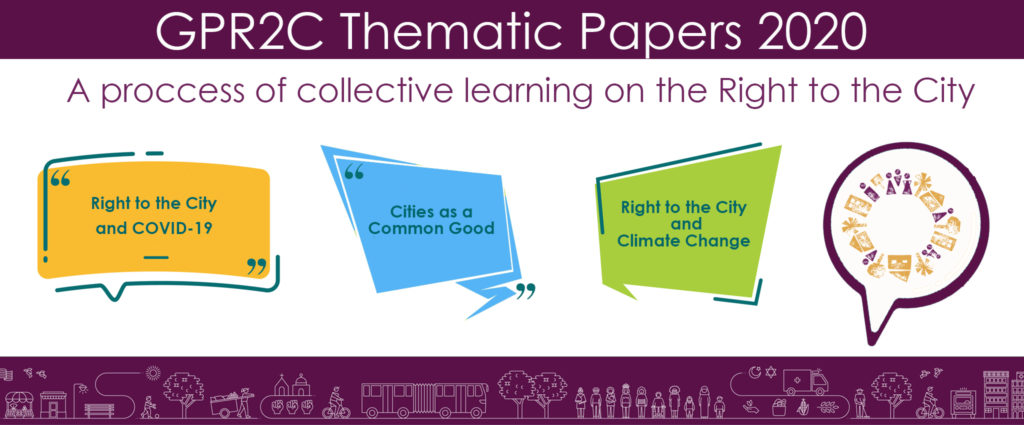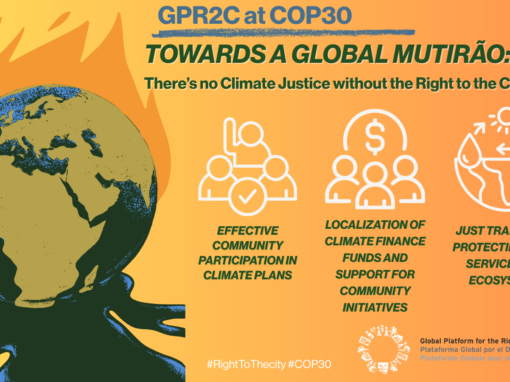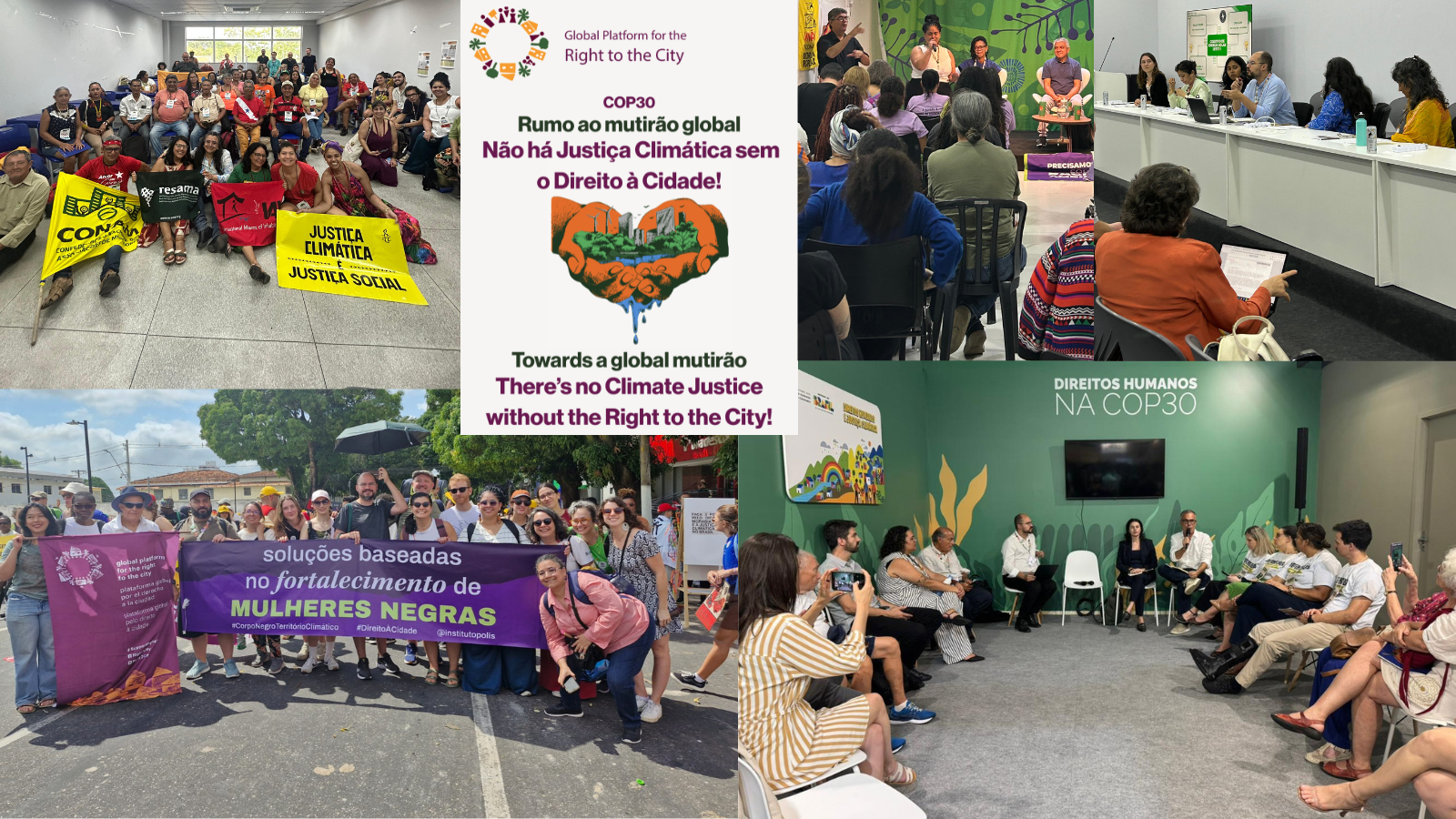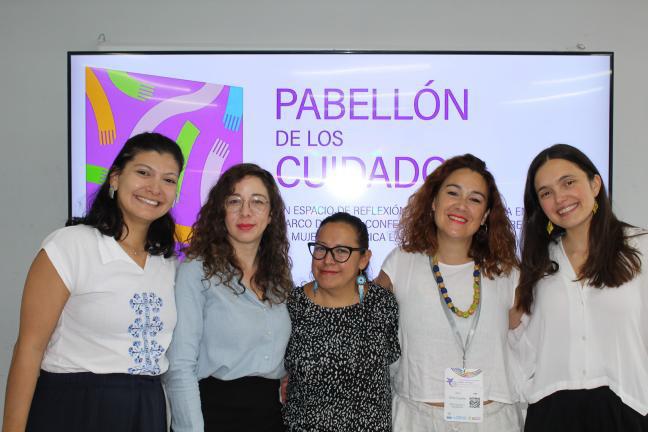
The Global Platform for the Right to the City (GPR2C) is organizing a process of collective learning on the Right to the City. This process is being carried out through the development of seven thematic papers on the perspective and connection of the Right to the City with strategic themes and the eight Right to the City components.
The idea is not only to deepen the content of each thematic but also to systematize initiatives and experiences (from public policies, civil society initiatives, etc.). These documents are intended to strengthen the advocacy, training, networking and communication work of the GPR2C.
The main themes chosen for these thematic papers
In the current year three Thematic Papers are being drafted by three experts:
- The impact of Covid-19 on the Right to the City and the post-pandemic perspectives in the cities and human settlements, in charge of Eva García Chueca, Senior Investigator at CIDOB.
- The relevance of the Right to the City to tackle climate change, global warming and climate justice, in charge of Álvaro Puertas Robina, Architect, former Secretary General of HIC.
- The meaning of the city and human settlements as a Common Good, in charge of Edesio Fernándes, member of DPU Associates and of the Lincoln Institute of Land Policy.
Next year, four Thematic Papers will be produced and would address different components of the Right to the City: gender equality, cultural diversity and no discrimination; enhanced political participation and inclusive citizenship; social function of the city and quality public spaces; inclusive economies and inclusive rural-urban linkages.
A participatory approach
In order to guarantee a co-production process involving members and allies of the GPR2C, a collaborative method has been set up. This will ensure a collective learning and provide additional visions and experiences to the documents.
The three experts are supported by a reference group formed by members of different organisations members of the Platform. These groups are closely following the drafting of the documents and providing assistance to the experts.
Additionally, we have organized 3 webinars (one for each thematic document) to broaden discussions and collect suggestions and proposals from a wider range of organizations (including grassroots and social movements, NGOs, professionals, academics and local governments’ representatives from different countries and regions). The objective of these webinars was to present a first draft of the Thematic Papers, get feedback and learn more about the initiatives that are being carried out locally by our members and allies.
During the webinars, the debates and exchanges were rich and this will be very helpful in the process of drafting the thematic papers.
Here is a short detail of each webinar.
Right to the City and Climate Change

See the Webinar here
The first Webinar about The relevance of the Right to the City to face Climate Change, Global Warming and Environmental Justice, took place on October 27th, we had 30 participants from all over the world.
Alvaro Puertas Robina presented the main challenges for this document:
The climate emergency is undeniable, it has been pointed out by experts for almost 50 years. This thematic paper will focus on the advantage that the vision of the Right to the City can bring to this issue.
Participants emphasized on the importance of approaching the subject from the perspective of Climate Justice. Indeed, different testimonies gave examples of the structural inequalities that are aggravated by the climate crisis.
With regard to international documents, the public stressed the lack of vinculation and binding. For the participants, it was important to consider global/local links, in order to provide concrete actions that have a positive impact.
Cities as a Common Good

See the Webinar here
The Webinar about Cities as a Common Good, took place on November 03, we had over 30 participants from different organizations.
Edesio Fernándes emphasized his presentation on:
The need to deepen the legal meaning of the right to the city, to make it stronger and more consistent. To define public property and its use, the notion of commons is essential. In recent times there are movements around the world that have grown and are fighting for a common use of public spaces and places.
Many experiences, debates and initiatives were shared, from Argentina, France, Greenland, México, Brazil and the discussion focused on:
The importance of having a clear definition of the concept of Common Goods, Commons, the Common Good. Participants stressed that there is a need for community participation, where communities have a clearly defined role in the process of decision-making.
Finally, discussions focused on how through the dialogue with the commons and the experiences being led in different places we can redefine what is public and how to collectively govern it.
Right to the City and COVID-19

See the webinar here
The last Webinar about Right to the City and COVID 19, took place on November 5th, with 25 participants from different organizations.
Eva García’s presentation emphasized on:
The number of unresolved issues that the pandemic has simultaneously raised such as poor access to adequate housing, homelessness, urban economies too much dependent on mass tourism, etc… The pandemic has had a greater severe impact over traditionally excluded or vulnerable groups (women, children, older persons).
The idea of the paper is to develop recommendations on different policy fields (Health, Housing and basic services, Livelihoods, and economy – public space, vulnerable population, Democratic Participation, Mobility)
During the second part of the webinar we had an open discussion with the participants that focused on :
The violation of fundamental rights that may have occurred at different levels: evictions, democracy offences,increase in gender and intra-family violence.
On the other hand, several examples of solidarity and self-help were presented by the participants. These initiatives are linked to different components of the Right to the City (social function, livelihoods, public spaces).
Finally, it is essential to have a more systemic vision of the proposals, in a more territorial way and focusing on target groups.
The next steps in the process of the creation of the Thematic Papers
Thanks to all the rich contributions from members and allies of the GPR2C, the consultants will be able to work on a second version of the documents.
These three documents are interconnected and will be published jointly during the first quarter of 2021, stay tuned to follow this process.
Join us in this collective learning process on the Right to the City!





